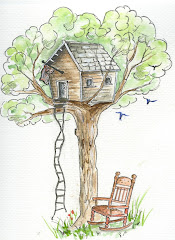When the Harry Potter books came out, I have to admit that they were completely off my “literary radar.” My first experience with Harry and friends was in my 8th grade art class, during which we would listen to the audiobook and try to be artistic. My art teacher’s favorite book was Prisoner of Azkaban, so naturally, that was what we listened to that semester, and as Jim Dale read the story, I knew I was a little bit in love.
I think that if I had read Harry Potter when it first came out (I would have been 10), I would have focused on very different parts of the story, and missed other themes completely. But, since I really started to read them when I was 14, I was able to see so much more of the “real world” in this fantasy book. As I’ve grown, second and third (and fourth?) readings of the series have only illuminated more issues not typically focused on in a lot of “children’s” literature, such as social class, race, human rights, and discrimination to name a few. To narrow this discussion down, here I will just touch on the issue of class structure within Azkaban and the series as a whole.
More often than not, Draco Malfoy’s insults at Ron center on Ron’s general poverty and lowliness: “‘I heard your father finally got his hands on some gold this summer, Weasley…Did your mother die of shock?’” (80). These, and other such insults abound in the books, particularly coming from the Malfoy family and aimed at the Weasley family. The Malfoys are from the upper-echelons of wizarding society because they are both pure-bloods (the idea of blood “purity” is also seems closely linked to class in the novels), and are far more wealthy than most other characters in the books. The Weasleys, though also pure-bloods, are considered “blood traitors” b ecause they hang around with muggle-borns (“mudblood” being the deragotory term) like Hermione. Also, to Ron’s chagrin, the Weasleys live a very humble, though family-oriented life, and as a result, he has always worn hand-me-downs from his elder brothers, taken sandwiches for lunch on the Hogwart’s Express, and generally has to deal with a lot of teasing from snooty peers like Malfoy.
ecause they hang around with muggle-borns (“mudblood” being the deragotory term) like Hermione. Also, to Ron’s chagrin, the Weasleys live a very humble, though family-oriented life, and as a result, he has always worn hand-me-downs from his elder brothers, taken sandwiches for lunch on the Hogwart’s Express, and generally has to deal with a lot of teasing from snooty peers like Malfoy.
It is really not surprising how much class structures come up in these novels, as they are, of course, set in the United Kingdom, where class seems to be (in my experience) much more of an issue than race does. The moment a British person speaks, most native ears can identify roughly where that person was raised, whether it be in posh London, (notably not south London), or from some small town in another region. It is through accents that complete strangers can semi “place” another person in their society, and perhaps adjust how “friendly” to be with that person. So, just as the Weasleys can’t escape the stereotypes of a large family with a small income, neither can many Brits escape the associations with their roots, especially if they have a rural (especially Welsh) accent.
I tried (unsuccessfully) to locate a video regarding social class in Harry Potter on YouTube, but most of what I found were scenes from the movies set to music. (Lame!) Instead, these are three of the most popular fan-created sites about everything Harry Potter, where you can find all sorts of fun ways to waste time. The third link goes directly to an editorial written about the sociology of Harry Potter, and goes into much greater detail about the issues of social class, racism, slavery, and discrimination (among others) that are seen in the Harry Potter series.
http://www.hp-lexicon.org/index-2.html
http://www.the-leaky-cauldron.org/
http://www.mugglenet.com/editorials/editorials/edit-labozettar01.shtml




